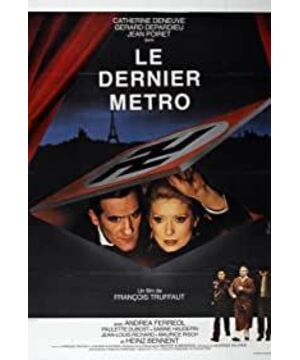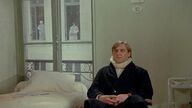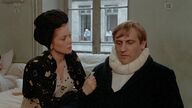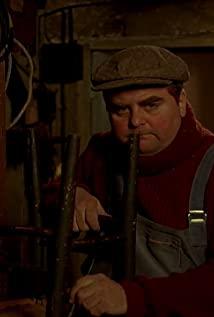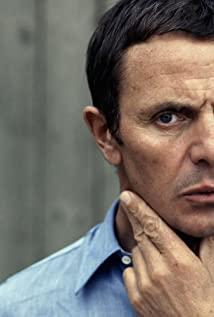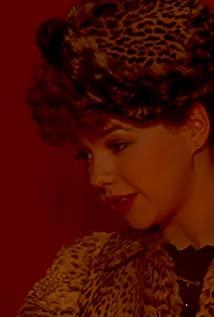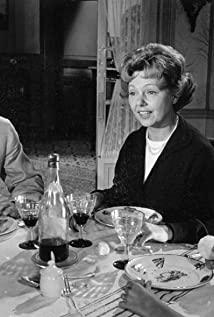The film does not have too much ups and downs. The story line is very simple. Lucas and his wife originally ran a decent theater, but his Jewish identity forced him to hide under the cellar of the theater to direct the performance. And his beautiful wife Marion walked to the front desk to maintain the operation of the theater. When rehearsing a new play, the rebellious actor Bernard stepped into it. On the one hand, Marion wanted to cover his husband, and on the other hand, she had to be involved in the love with Bernard, until the eve of the end of the war, she clasped the hands of the two men, a perfect curtain call. Although there are plots of Jews hiding in cellars and avoiding the Nazis, what is handled in the film is not as thrilling as imagined. Truffaut still shows us the full range of human emotions in France under German occupation.
We are accustomed to praising heroes who stand up and defend the nation with their lives when foreign enemies invade, and we often disagree with people who live silently. The heroes who have come forward are certainly worthy of praise, but those who live hard life also have their side worthy of respect. In this film, we see the life of ordinary French people. They may not directly resist the enemy, but they silently resist with an attitude of continuing to live. This kind of silent resistance can be seen everywhere in the film. For example, a German soldier touched the child’s head, and the child’s mother said, "Let’s go home and wash our hair soon." Take back his clothes and hats. It is more reflected in the story of the theater's tenacious persistence in their career under tremendous pressure, in the persistence of Lykas hiding in the cellar for more than 800 days to continue his theatrical career. Lykas listened to the performance of the earth world through a tunnel in the underground world. He was also anxious and restless, frustrated and disappointed. However, I believe he has more love and hope for his career, otherwise he would not be able to live a stubborn life in the cellar. More than two years. Of course, there is also the support of his wife Marion. Marion is the real hero in the film, a respectable hostess. She hopes for a peaceful life, and hopes to continue the drama between her and her husband. For this reason, she is in The world is busy between the underground and the ground. She has to deal with the censorship of the authorities, and she has to work hard for her life. What makes her even more exhausting is that she has to fall into emotional entanglement between her husband and Bernard. And Bernard is a very complicated character, a bit like a cynical flower man, but he supports the cause of resistance of his companions. In the relationship between him and Marion, the director dealt with suspense, until the end he revealed the deep love between him and the heroine. In this film, the acting skills of the three main actors are very good, which makes this film that describes a relatively ordinary life very bright.
Although there was resistance to the occupiers, what I saw was the life of ordinary French people. In the film, the French were not as bitter and enmity as imagined, with their eyebrows furrowed. They are living and entertaining in the same way. Enjoy the art in the theater before the last subway, applauding indulgently. I have heard that during the Great Depression, Americans were obsessed with the moments of joy brought to them by the movie world, and Hollywood also rose in the hope of people seeking joy in pain. So, as French people whose land has been occupied, they are looking forward to even a moment of peace. Facing the aggressor, most of them are full of contempt and anger, but only part of them can directly resist regardless of their lives. Then the remaining people who do not want to go with the aggressor can only choose to live a good life, because only a tenacious life can wait until the day of victory, just like Lucas, until the day when the sun is seen again. Like the people in the theater are ordinary, many of them are full of ordinary wishes even in the war, the old lady looking for relatives, the students who are eager to become prosperous, the drama of buried and trivial life, the theater manager who is dealing with the social world , Children who grow tobacco and play, these ordinary people and resisters, conspirators and occupiers constitute a real life in the occupied territories, and for these ordinary people, we always paid too little attention to it in the past, so I want to say , Truffau is respectable.
After the "Last Train" was released, it was a great success. Some people think it is a classic of audiovisual art. Regardless of whether this evaluation is overly acclaimed, I admit that this film is indeed very distinctive visually. Red is the main color in a film, but it's not the kind of red that Zhang Yimouai played with. The whole film is always shrouded in a faint crimson color, which not only gives the audience a sense of beauty, but also adds a sense of history. As a film reflecting the ordinary people in wartime, there is no gunpowder and noise on the battlefield, no tension and heaviness of life and death. In the end, people who live in ordinary life wait for victory, and they can finally enjoy the theater as much as possible, and the film does not change. The heroine was embarrassed to choose between the two men. During a curtain call, Marion held Lucas who was with him underground in the war in one hand, and Bernard, who accompanied him on the ground in the war, and said A knowing smile, and the film ends here, leaving us with an equally long and perfect curtain call.
http://handsomewang.blogdriver.com/handsomewang/1056725.html
View more about The Last Metro reviews


